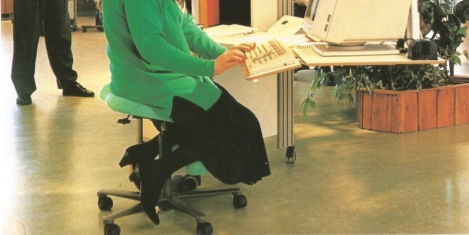October 10, 2018
Long waits for mental health treatment lead to life changing problems, RCPsych study finds
 A quarter of people (24 percent) with a diagnosed mental health condition reported waiting more than three months to see an NHS mental health specialist, a poll for the Royal College of Psychiatrists (RCPsych) has found. Some (6 percent) say they waited more than a year to see an NHS mental health specialist – one man interviewed following the poll said he waited 13 years to get the help he needed. Where respondents’ mental health got worse, these waits led to relationship problems including divorce (36 percent), financial troubles (32 percent) and work problems including job loss (34 percent).
A quarter of people (24 percent) with a diagnosed mental health condition reported waiting more than three months to see an NHS mental health specialist, a poll for the Royal College of Psychiatrists (RCPsych) has found. Some (6 percent) say they waited more than a year to see an NHS mental health specialist – one man interviewed following the poll said he waited 13 years to get the help he needed. Where respondents’ mental health got worse, these waits led to relationship problems including divorce (36 percent), financial troubles (32 percent) and work problems including job loss (34 percent).








 More SMEs than larger businesses offer flexible working as a way of reducing absences, research from industry body Group Risk Development (GRiD), suggests. The research showed that 35 percent of SMEs with up to 249 employees are actively using flexible working strategies to combat absence compared to just 23 percent of organisations with over 250 employees. Drilling down further into the detail, 38 percent of micro businesses with between 1 and 9 employees use flexible working as a means to reduce absence. Flexible working now means a lot more than allowing an employee to work from home when they are feeling under the weather, and following changes in the law in 2014, it is now an option for everyone with at least 26 weeks continuous employment to request it – not just those with children or carer responsibilities. It also includes part-time working, term-time working, job sharing, compressed hours and flexitime. A greater degree of flexibility can increase productivity and reduce burn out, particularly in stressful occupations.
More SMEs than larger businesses offer flexible working as a way of reducing absences, research from industry body Group Risk Development (GRiD), suggests. The research showed that 35 percent of SMEs with up to 249 employees are actively using flexible working strategies to combat absence compared to just 23 percent of organisations with over 250 employees. Drilling down further into the detail, 38 percent of micro businesses with between 1 and 9 employees use flexible working as a means to reduce absence. Flexible working now means a lot more than allowing an employee to work from home when they are feeling under the weather, and following changes in the law in 2014, it is now an option for everyone with at least 26 weeks continuous employment to request it – not just those with children or carer responsibilities. It also includes part-time working, term-time working, job sharing, compressed hours and flexitime. A greater degree of flexibility can increase productivity and reduce burn out, particularly in stressful occupations.








 Nearly half of UK managers (45.1 percent) are ill-prepared for the role, and a quarter (25 percent) of employees say their manager does not have the right skills for effective management, claims new research by Bridge by Instructure. The study, based on interviews of 1,000 managers and employees across the UK on their attitudes towards both management and learning and development, revealed that more than half of those who responded (53.4 percent) think managers need more training to perform as a manager and, almost half (45 percent) think managers need to be given time to operate as a manager rather than having those responsibilities ‘bolted on’ to their existing role.
Nearly half of UK managers (45.1 percent) are ill-prepared for the role, and a quarter (25 percent) of employees say their manager does not have the right skills for effective management, claims new research by Bridge by Instructure. The study, based on interviews of 1,000 managers and employees across the UK on their attitudes towards both management and learning and development, revealed that more than half of those who responded (53.4 percent) think managers need more training to perform as a manager and, almost half (45 percent) think managers need to be given time to operate as a manager rather than having those responsibilities ‘bolted on’ to their existing role. 















August 21, 2018
How do you make your company culture work for everyone?
by Jonathan Richards • Comment, Workplace
More →